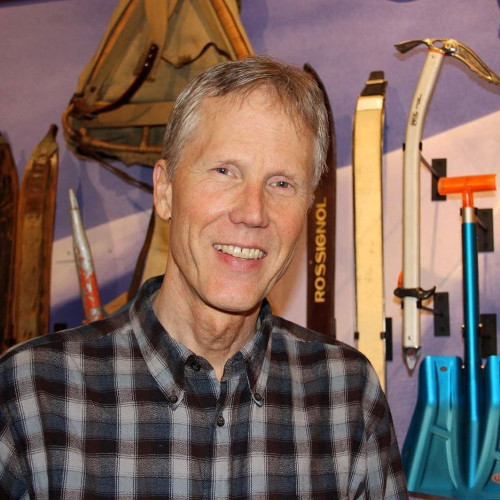- Posts: 1460
- Thank you received: 16
Advance Hindsight
- Lowell_Skoog
- [Lowell_Skoog]
-
 Topic Author
Topic Author
- Offline
- Platinum Member
-

The acceptance heuristic is the tendency to engage in activities that we think will get us noticed or accepted by people we like or respect, or by people who we want to like or respect us. We are socialized to this heuristic from a very young age, and because we are so vulnerable to it, it’s no surprise that it figures prominently among the heuristic traps embedded in advertising messages.
McCammon talks about acceptance in the context of mixed gender groups. I think it also plays a part in non-mixed settings. Heck, I think it even plays a role in writing trip reports on TAY. We all want to be accepted and to do well socially, and this can color our decision making in ways we may not think about consciously.
The acceptance heuristic has a mirror image. For lack of a better term, I call it the "what where they thinking?" heuristic. Anyone who has read or written accident reports knows what I mean. This is the tendency--after the fact--to clearly see factors leading to an incident and to wonder why the party ignored them. When I was paragliding a lot in the 1990s (and writing accident reports), I realized that this might be a useful tool to counteract some of the psychological traps that can lead to bad decisions. I call this technique "advance hindsight."
Here's how it works: As you contemplate an important decision during your trip, imagine that you make the wrong decision. Imagine that the slope you've decided to ski isn't stable. Imagine that it slides and you're involved in an avalanche. Then imagine what your friends (and the authorities) will conclude in the aftermath when they analyze what happened. Will they identify warning signs that you've seen, but that you have rationalized away? Will they wonder, "what where they thinking?" Put yourself in their shoes. Knowing what you know, if a friend did what you are about to do and it turned out bad, would you say that he/she should have seen the warning signs? If so, maybe you should change your plan. Take advantage of advance hindsight.
In 1999, I attended a memorial service for Dr. Otto Trott, who made the first ascent of the Hanging Glacier route on Mt Shuksan (1939), the first ski ascent of the mountain (1941), and who, with Wolf Bauer and Ome Daiber, was one of the founders of Mountain Rescue in the Northwest (1948). At the memorial, Wolf Bauer told a story about skiing with Otto in the Mt Baker backcountry, and finding themselves rather far from home as night was falling. Otto, who was an early member of the Mt Baker ski patrol and an expert on the area, thought he knew a short-cut down a gully that would get them home fast. Wolf was just as sure that the gully was a bad idea, and he argued for a longer route that they both knew would work.
Both men were experts. Both were Teutonic and strong willed. Things were at an impasse until Wolf said, "If we go your way, and it doesn't work, you know they're going to call Ome Daiber to come look for us. We'll never hear the end of it."
That did it. Wolf and Otto took the long way. They got home a little later than the shortcut might have done, but the trip was a non-event. Advance hindsight carried the day.
Please Log in or Create an account to join the conversation.
- CookieMonster
- [CookieMonster]
-

- Offline
- Senior Member
-

- Posts: 392
- Thank you received: 0
I think about how my family would feel having to stare into my lifeless eyes.
Please Log in or Create an account to join the conversation.
- freshie
- [freshie]
-

- Offline
- New Member
-

- Posts: 27
- Thank you received: 0
Please Log in or Create an account to join the conversation.
- DG
- [DG]
-

- Offline
- Junior Member
-

- Posts: 150
- Thank you received: 0
Please Log in or Create an account to join the conversation.
- Lowell_Skoog
- [Lowell_Skoog]
-
 Topic Author
Topic Author
- Offline
- Platinum Member
-

- Posts: 1460
- Thank you received: 16
When I start to wonder whether to take a certain path my technique is to ask myself "if something goes wrong, how would it read in the newspaper the next day?" Considering whether an anonymous reader would say "What was he thinking!?!" or "That guy was unfortunate" helps me get my head around the situation.
Right. The idea is to cut through the emotional factors leading to your decision and look at the facts at hand. Imagining the accident report can help you determine whether you're wandering into a "what was he thinking?" situation or a "gee, he had bad luck" situation.
Around the time I learned to paraglide, the author Richard Bach ("Jonathan Livingston Seagull" etc) was also taking lessons. (He's flown just about every sort of aircraft.) He gave a talk to our local paragliding club in which he talked about the idea of "chains." Many accidents are not the result of a single misfortune, but instead are the end result of a chain of mistakes. You overslept, forgot an important piece of gear, got in a hurry, made a route finding error, got benighted, and eventually had an accident. Recognizing a chain when you're in it--but before it goes bad--is another valuable skill.
Please Log in or Create an account to join the conversation.
- blackdog102395
- [blackdog102395]
-

- Offline
- Junior Member
-

- Posts: 161
- Thank you received: 1
Around the time I learned to paraglide, the author Richard Bach ("Jonathan Livingston Seagull" etc) was also taking lessons. (He's flown just about every sort of aircraft.) He gave a talk to our local paragliding club in which he talked about the idea of "chains." Many accidents are not the result of a single misfortune, but instead are the end result of a chain of mistakes. You overslept, forgot an important piece of gear, got in a hurry, made a route finding error, got benighted, and eventually had an accident. Recognizing a chain when you're in it--but before it goes bad--is another valuable skill.
Last year I found myself caught in a chain that eventually ended with me tearing my MCL in half. It started with a return to snowboarding and rusty skills; add in malfunctioning equipment and early season conditions. Toss is the fact that I was quickly falling behind my partner's pace. Finally, top it off with poor conditioning. Next thing you know, I wound up in creek, inverted with snow collapsing on top of me. Fortunately I twisted my knee so hard that I ripped the binding off the splitboard interface. I was eventually able to swing my leg under me before I was completely buried. Early season powder had me ignoring the sequence of events. I'm wiser now, but it's difficult to accurately assess in the middle of the chain.
Please Log in or Create an account to join the conversation.
- Oyvind_Henningsen
- [Oyvind_Henningsen]
-

- Offline
- Junior Member
-

- Posts: 62
- Thank you received: 0
Please Log in or Create an account to join the conversation.
- garyabrill
- [garyabrill]
-

- Offline
- Senior Member
-

- Posts: 464
- Thank you received: 0
Please Log in or Create an account to join the conversation.
- GerryH
- [GerryH]
-

- Offline
- Junior Member
-

- Posts: 88
- Thank you received: 0
Please Log in or Create an account to join the conversation.
- normanclyde
- [normanclyde]
-

- Offline
- New Member
-

- Posts: 28
- Thank you received: 0
I became familiar with this advanced hindsight phenomenon in the early years of my medical career. I'd get a late night call from a patient with a vague complaint. I would entertain the possibility that they had something serious. For whatever reason, I would dismiss my concerns and hang up the phone. I would not go back to sleep. A sick feeling would creep into my gut as I thought about the bad diagnosis that might currently be evolving inside them, the diagnosis that I chose not to investigate. I'd think about how I would feel if I were to find out they had that condition. Five, ten minutes tops, I'd be back on the phone.
It's like other assessments of risk. When you're sure something is OK, or sure it's not, that's easy. It's the ones in between that are dangerous. After many years of repetition, I can recognize this process it as it occurs. I've developed shortcuts to my various levels of certitude. It takes less time to recognize those gray areas of risk where I'm fairly sure a patient is not in danger, but the risk is high enough that I just can't dismiss my concern.
My review of avalanche statistics has convinced me that heuristics are the primary factor that determines who lives and who dies. There are simply too many examples of the "What were they thinking?" phenomenon. The social dynamic on a backcountry outing can be intense. The times I've set off a slide, or found myself on a slope where I shouldn't have been, I was never ignorant of the danger. I proceeded in spite of the danger. Usually because someone else went there first and I followed, being too uncomfortable, or too subordinate, to assert my opposition.
Estimating risk is less than half the battle. You have to understand the dynamics behind the decision process. Backwards and forwards, inside and out.
Marcus, thanks for adding this topic.
Please Log in or Create an account to join the conversation.
